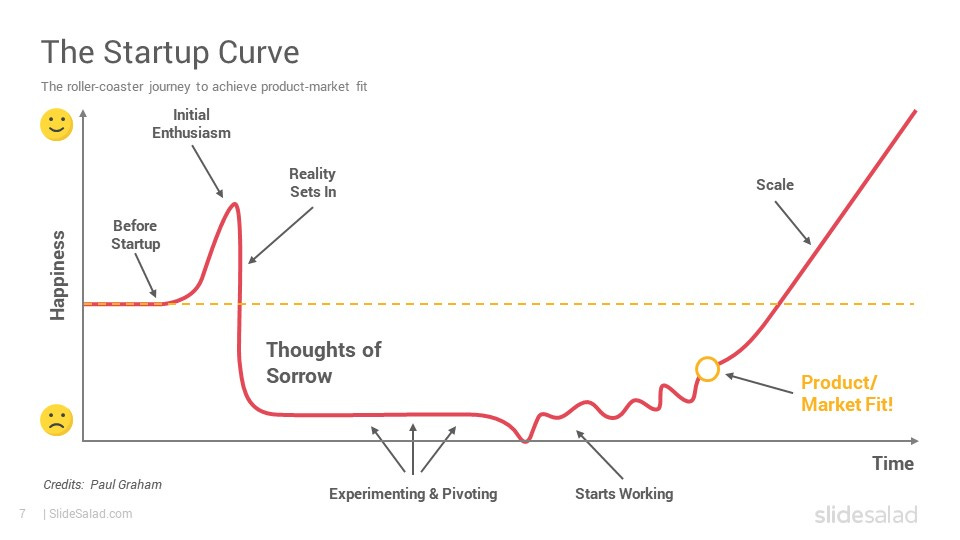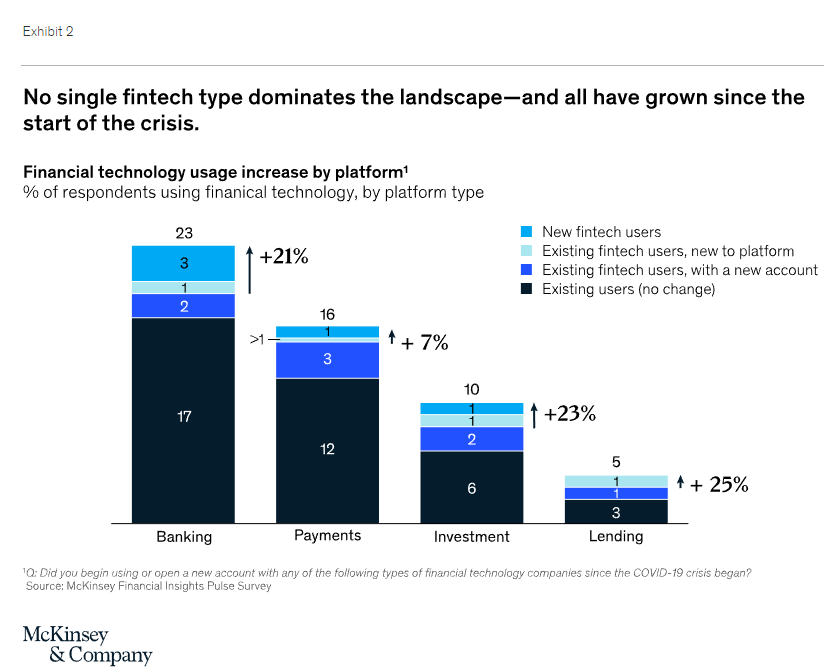Blueprint: 2023's bold start -- Wyre shuts down; Jack Ma out of Ant Group; Genesis on verge of bankruptcy
And how to build in this market
Hi Fintech Futurists —
You are the best, today’s agenda below. Chin up everyone!
CRYPTO: From $1.5B to $0, Crypto Payments Platform Wyre Shuts Down (link here)
CONSUMER: Jack Ma cedes control of Ant Group (link here)
CRYPTO: Crypto Broker Genesis Cuts 30% Of Staff, Reportedly Mulls Bankruptcy (link here)
LONG TAKE: How to design your Fintech business model (Build It Series, Part 1) (link here)
PODCAST CONVERSATION: The Fintech Blueprint guide to designing your 2023 business model (link here)
Here’s that handy upgrade button to access the Long Takes — a rigorous view on the future of our industry. Level up your Fintech and DeFi knowledge. 👇👇👇
In Partnership
Businesses were fined $2.7B in 2021 for not complying with AML regulations.
Persona, an identity solution offering configurable infrastructure for KYC, AML, and KYB, is offering 500 free gov ID + selfie verifications and Persona watchlist reports each month to help you meet KYC/AML requirements without worrying about your bottom line.
Fintech Meetup: Ticket Prices Increase Friday at Midnight! Don’t miss Q1’s BIG new event with Cover Genius, Alloy, Onfido...and 3,000+ attendees you need to meet. Join content and pre-scheduled meetings that set you up for the year. In-person at the Aria, Las Vegas March 19-22.
Short Takes
CRYPTO: From $1.5B to $0, Crypto Payments Platform Wyre Shuts Down (link here)
The crypto industry pressure continues, as payments platform Wyre shuts down after a cancelled acquisition deal from Bolt Financial for $1.5B in September of last year. The deal would have been one of the largest non-SPAC crypto deals to date, but reportedly fell through due to the volatility of both the crypto market and markets generally. In question would be both Wyre’s ability to generate profits, and Bolt’s ability to afford the acquisition.

Wyre is one of the older names in the crypto space, founded in 2013 by Michael Dunworth and Ioannis Giannaros. It had raised $29MM+ over nine rounds from Amphora Capital, Stellar Development Foundation, Pantera Capital, and others. Despite the big name backing, 2022 give us more than enough evidence that big funds do not get it right every time.
The first major warning sign came with Dunworth’s exit from the company shortly after the failed acquisition, cashing out 12.5% of his holdings in the process. The next issue was the Wyre+Yield product, which closed to retail in February, despite continued usage by CeDeFi and fintech apps. The writing on the wall was clear with the 90% withdrawal limit imposed on all users. And last week MetaMask announced they had removed Wyre from it’s mobile aggregator, having partnered with PayPal for fiat-to-crypto onboarding.


The failure of Wyre marks yet another firm claimed by the bear market, likely driven by high fixed costs of operating the business, and limited marginal revenue from operating on top of the card networks and various other fintech infrastructures, each taking their fee. The current period is rough, but helpful in rooting out unsustainable businesses to move things towards better business models.
👑 See related coverage 👑
CONSUMER: Jack Ma cedes control of Ant Group (link here)
Jack Ma, founder of Alibaba Group and private equity firm Yunfeng Capital, is stepping down from Ant Group, the fintech arm of eCommerce giant Alibaba that separated from its parent company in 2011. Ma will see his voting rights drop from over 50% to 6.2%, reopening the possibility of an Ant Group IPO, which was going to be the largest IPO in history until it was cancelled in November 2020 under government pressure.

Rewinding to October 2020, we reported that Ant Group had made it through the regulatory red tape needed for a $35B dual-listing, split between Hong Kong and Shanghai. However, President Xi Jinping, backed by regulators and state-owned banks that had been lobbying against Ant Group’s dominance within lending and payments, shut down the IPO on the day. The move followed a speech by Ma criticising Chinese regulators and state-owned banks right before the planned IPO. Over the months to follow, there was a regulatory crackdown on many of the largest tech groups in China.
Ma’s reduction in voting rights appears to appease regulators and reduce his role relative to influencing core financial services infrastructure. It also implies there will be no single controlling owner of Ant, with independent directors making up over half the board — including prominent director Laura Cha, the Hong Kong stock exchange chair. Otherwise, Ant has worked hard over the last two years to meet Chinese financial company requirements by restructuring and addressing issues such as boosting the capital base of the consumer loan unit, getting approval to turn into a financial holding company, and obtaining the necessary licenses for its credit scoring unit.
Even with these changes, an IPO isn’t imminent, with the initial focus being business optimisation — not a bad idea given that fintech valuations are far from 2021 heights. But when it does happen, it is expected that the offering will take place in Hong Kong, rather than in the mainland, due to domestic regulators prioritising ‘hard tech’ IPOs rather than fintechs. With all the geopolitical risks going on, we are fairly skeptical of investing in Chinese technology companies, which are facing controls both by their home country, and increasing negative perception in the United States (e.g., see TikTok).
👑 See related coverage 👑
Interested in Sponsorship?
To support the Fintech Blueprint and reach our 150,000+ Substack and LinkedIn audience of builders and investors, learn more below or contact us here.
CRYPTO: Crypto Broker Genesis Cuts 30% Of Staff, Reportedly Mulls Bankruptcy (link here)
Crypto lender Genesis, owned by Barry Silbert’s Digital Currency Group, appears to be on the brink of bankruptcy after laying off 30% of its employees. The lender suspended withdrawals on November 16. No concrete plans as to how it will resume service have been announced.
Genesis is reported to be in $1.8B of debt, half of which is owed to the Winkelvoss-owned crypto exchange Gemini. Be careful to parse the names. Genesis partnered with Gemini for its Earn service, where users could earn interest on their crypto assets through Genesis — i.e., Genesis borrowed the money to do capital markets things, and Gemini promised their own clients margin interest. Now they can’t get it back from Genesis.
In total, $900MM in user funds was locked in the program, all of which is inaccessible to users. Cameron Winklevoss sent an open letter to Silbert last week regarding the loan, with Silbert avoiding culpability. It’s worth noting that Gemini explicitly took on the credit risk, and that their Earn product required the company to periodically conduct analyse of their partners’ cash flow, balance sheet, and financial statements to ensure that user funds are safe.


Other firms in the industry are also still struggling — Silvergate Capital reported on the same day as Genesis’ job cuts that they saw $8.1B in net withdrawals over the final quarter of 2022. Genesis had also lent $2.4B to Three Arrows Capital before it went insolvent in June, and had $175MM locked in its FTX account. This is the nature of financial contagion — all correlations go to 1. Genesis is starting to look more and more like Alameda, BlockFi, Celsius, FTX, Three Arrows, and Voyager, all of whom filed for bankruptcy last year.
Long Take: How to design your Fintech business model (Build It Series, Part 1) (link here)
We start 2023 with a series on how to build companies in Fintech and DeFi.
The first entry explores the topic of business models, and in particular, how to identify various shapes of demand, parse between different approaches to business model, and respect the economic and financial flows that drive your potential company. We highlight common mistakes and suggest approaches to navigating uncertainty and risk.
Podcast Conversation: The Fintech Blueprint guide to designing your 2023 business model (link here)
In this conversation, our Editor-in-chief Lex Sokolin walks through how 2023 is the year for executing on raw fundamentals, which means understanding how to design a Fintech or DeFi business model and understanding the shape of demand.
Companies must focus on customer centricity and use a Lean Startup methodology to validate ideas and assumptions. This is done by testing products and services with prospects, using digital landing pages, and buying Google Ads to drive people to those landing pages.
Rest of the Best
Here are the rest of the updates hitting radar.
PAYTECH: JP Morgan signs deal for stake in fintech Viva Wallet for over $800 million
INVESTING: LSEG to acquire Acadia
INVESTING: Goldman Sachs Adds Former Raymond James Team to Custody Platform
INVESTING: Trade Republic, a popular stock trading app, adds 2% interest on cash
WEALTHTECH: What InCred Money’s acquisition of Orowealth tells us about the wealth-tech industry
FaaS: StoneBridge Acquisition Corporation (NASDAQ: APAC) Announces Business Combination Agreement with Southeast Asia’s ‘Fintech-As-A-Service’ (FaaS) player – DigiAsia
BNPL: MUFG to start 'buy now, pay later' service with Kanmu acquisition
Shape your Future
Wondering what’s shaping the future of Fintech and DeFi? At the Fintech Blueprint, we go down the rabbit hole in the DeFi and Fintech industries to help you make better investment decisions, innovate, and compete in the industry.
Read our Disclaimer here — this newsletter does not provide investment advice and represents solely the views and opinions of FINTECH BLUEPRINT LTD.
Want to discuss? Stop by our Discord and reach out here with questions














